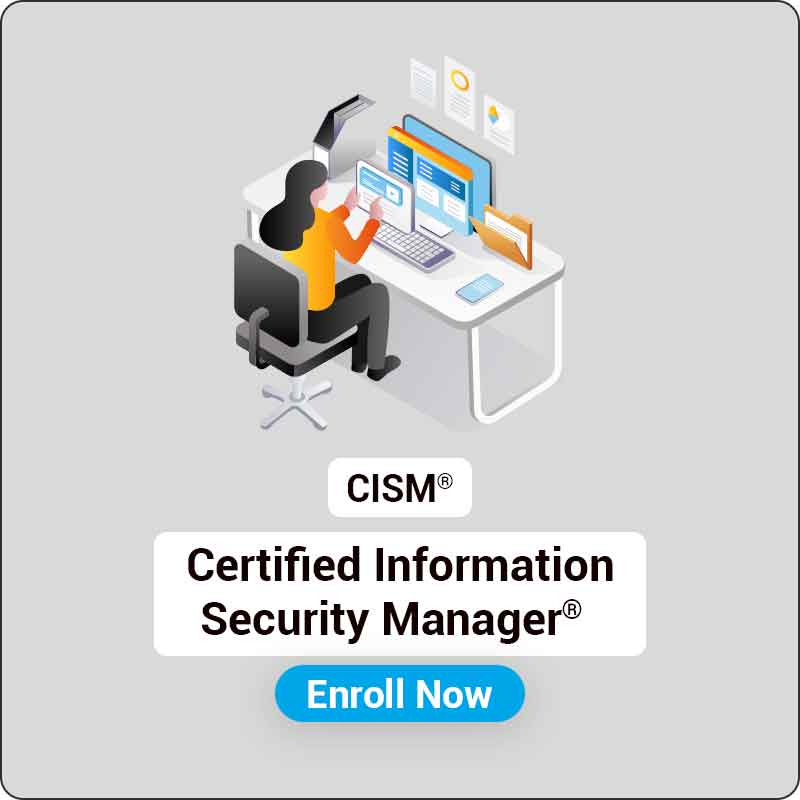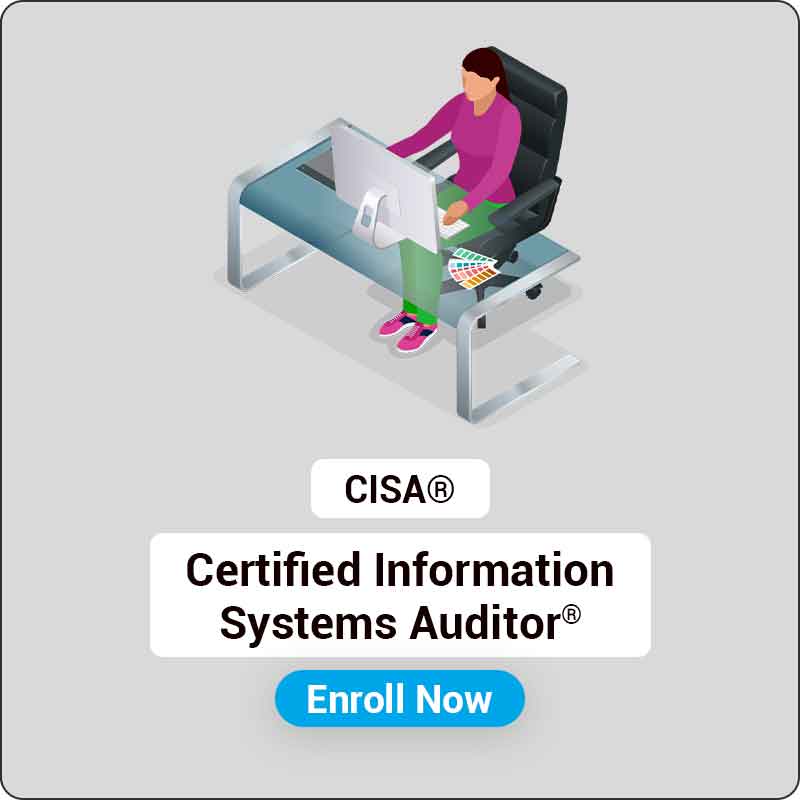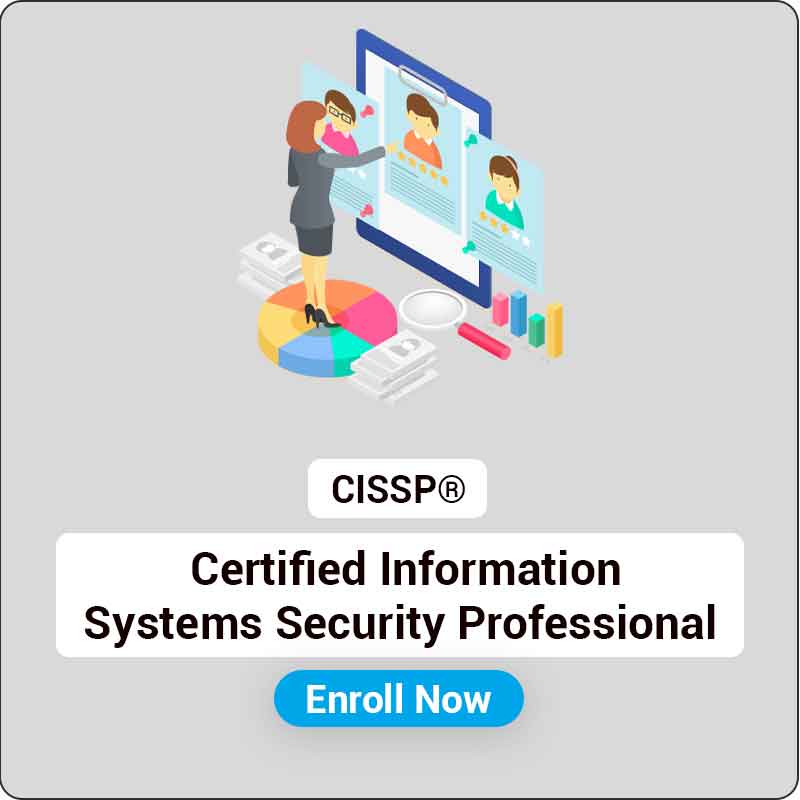Certified Information Systems Security Professional (CISSP) Certification Training Course

Course Package
Highly Experienced Instructor
Exam Voucher by ISC2
Live Instructor-Led Sessions
Real Life Examples & Case Studies
K-Prime Warranty
Highly Experienced Instructor
Exam Voucher by ISC2
Live Instructor-Led Sessions
Real Life Examples & Case Studies
K-Prime Warranty
Target Audience of CISSP Certification
Network architects, security consultants, security architects, security auditors, security managers, CIOs, directory of security, security analysts, and security systems engineers are just a few of the job roles that can enroll in CISSP training. Anyone looking to pass their CISSP Certification Exam can also enroll in CISSP training.
Pre-requisites of CISSP Training
Candidates with at least 5 years of work experience in two or more of the eight domains listed by ISC2 in their CISSP Common Body of Knowledge (CBK) are eligible to enroll in the Certified Information Systems Security Professional (CISSP) training program.
If the candidate holds a 4-year college degree or another certification credential from the list of ISC2 authorized courses, the requisite 5-year experience might be waived for one year.
CISSP Exam and Certification Information
- CISSP CAT Exam Format (Only in English)
- Exam Name : Certified Information Systems Security Professional (CISSP)
- Exam Format : Multiple Choice, Computerized Adaptive Testing (CAT)
- Total Questions : 150 Questions
- Passing Score : 700 out of 1000
- Exam Duration : 180 Minutes
- Languages : English
- Testing Center : Pearson Vue
CISSP Certification Journey

Course Outline
- Understanding legal and regulatory issues that pertain to information security in a holistic context is important for determining compliance and other requirements. Understanding the requirements for different types of investigations (administrative, criminal, civil, regulated, industry standards), developing, documenting, and implementing security policy, standards, procedures, and guidelines is also important.
- Understand and apply risk management concepts; comprehend and apply threat modelling concepts and methodologies; apply supply chain risk management (SCRM) concepts; identify, evaluate, and prioritize business continuity (BC) requirements; contribute to and enforce personnel security policies and procedures; and establish and maintain a security awareness, education, and training program.
- Determine data security controls and compliance requirements. Identify and classify information and assets. Establish information and asset handling requirements. Securely provision resources. Manage the data lifecycle. Ensure appropriate asset retention (e.g., end-of-life (EOL), end-of-support (EOS).
Achieve Your CISSP Certification Today!
Get Your Certificate in Just 7 Days
.png)
Frequently Asked Questions.
CISSP stands for Certified Information Systems Security Professional. It is globally recognized as the best Information Systems Security certification for Security Professionals.
At Knowlathon, our CISSP – Certified Information Systems Security Professional training program is designed as an intensive 5-day course. During this program, you will gain comprehensive knowledge across the eight domains of Information Security as outlined by (ISC)². Our expert-led training not only equips you with the in-depth understanding required to protect information systems but also prepares you thoroughly to successfully pass the CISSP exam. Fast-track your cybersecurity career with Knowlathon’s CISSP course — your pathway to becoming a globally recognized Information Security expert!




.jpg)






